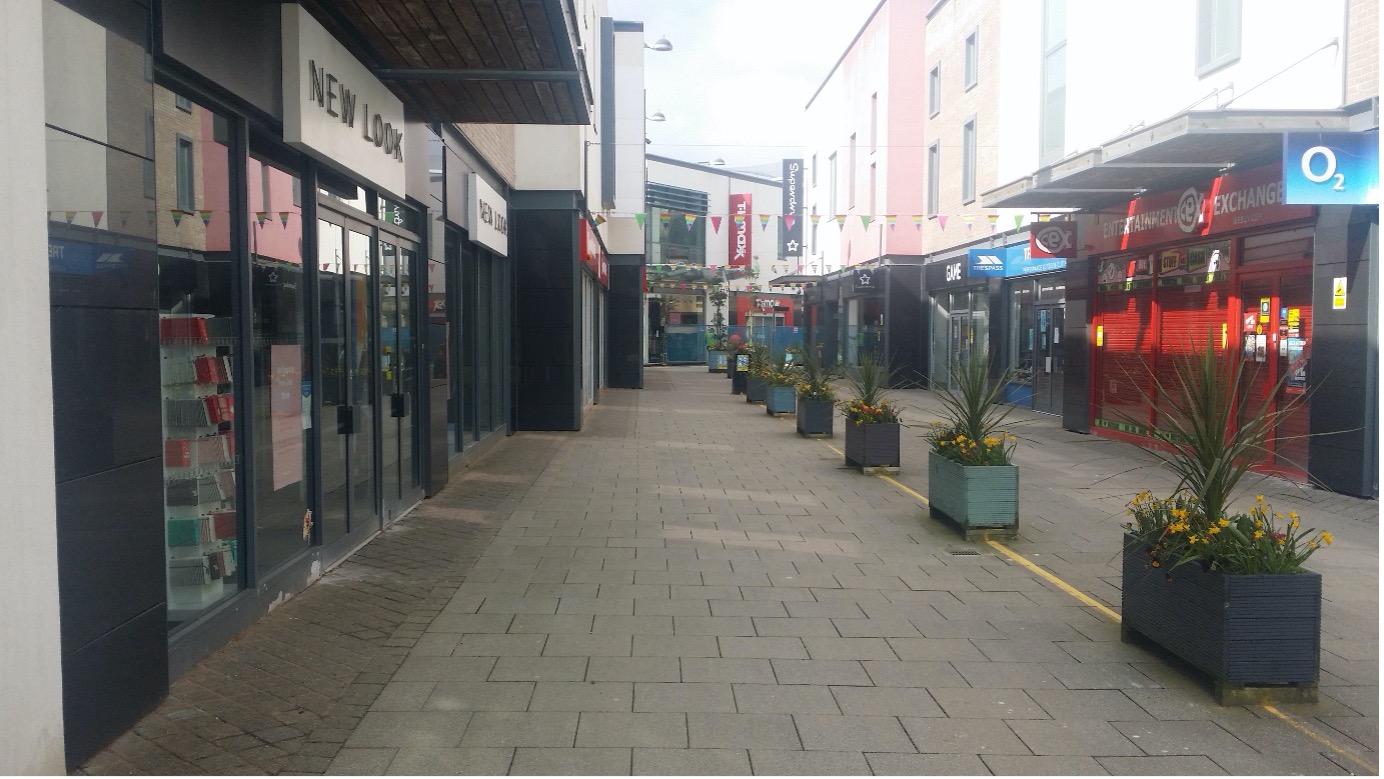March 24th, 2021.
Yesterday was the anniversary of the imposition of the first lockdown in the UK. I went on a visit to St Austell, a market town and centre of the once thriving china clay industry.
St Austell, with a population of 20,000, is one of the larger towns in Cornwall. It is the shopping centre for holiday destinations such as Mevagissey, other beaches, Charlestown Harbour and The Eden Project. Over time, the china clay industry declined as it faced increasing competition from cheaper overseas suppliers. St Austell is now a service centre for the farming and tourism community and the local residents, many of whom now commute for work to the only city in Cornwall, Truro.
Since the lockdown, trade in the town has declined and after three lockdowns many shops have closed, never to reopen. There is no demand from independent shops to take over the leases and the major UK chains will not open here as there isn’t the footfall to sustain their business in St Austell.
The only shops open at the moment are W H Smiths, Boots, and banks.
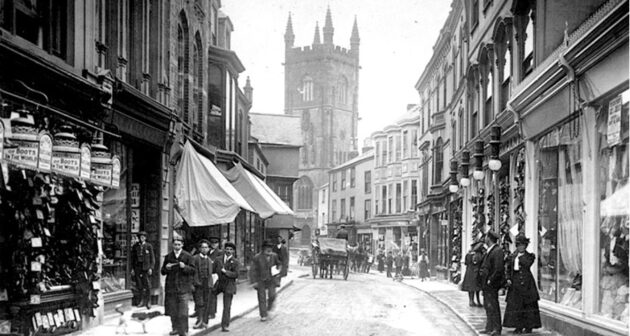
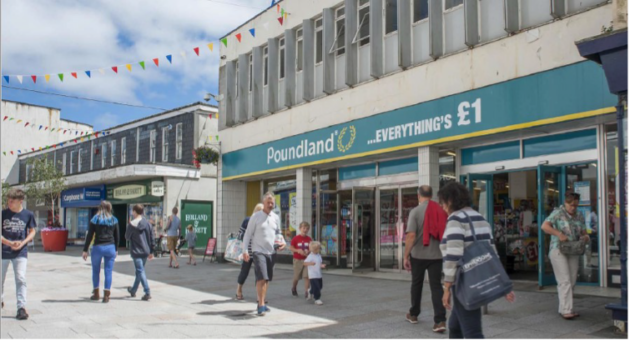
The pictures following are all of Fore Street (High Street), looking in both directions and the connecting road from the downtown car park. Taken at 12-30 pm today, the anniversary of the first lockdown.
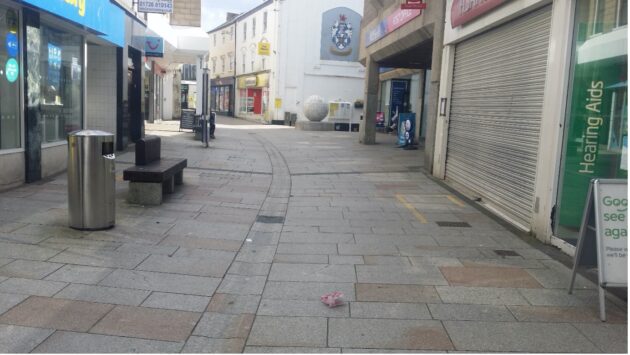
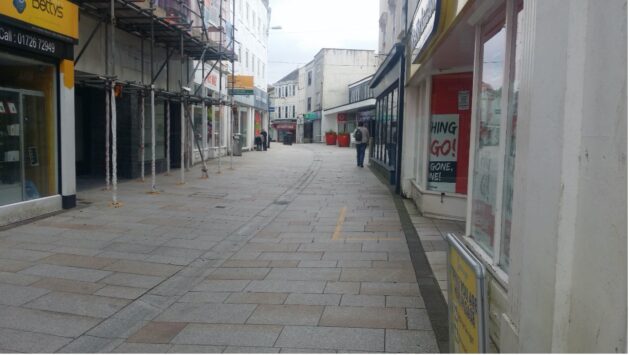
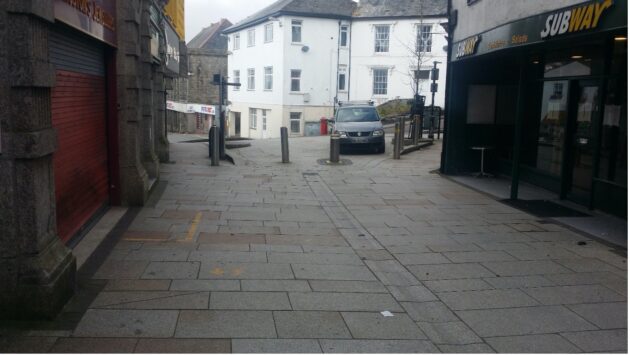
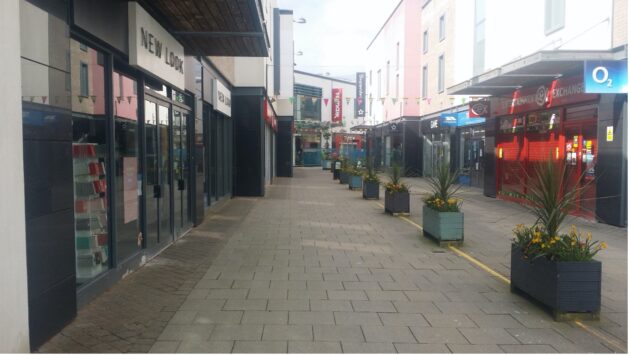
As stated, all these pictures were taken at lunchtime today. To say the town is dead is an understatement. It has been killed, not by the Covid virus, but by the government’s inaction at a local level, compounding what was an already difficult situation for a town in decline. Possibly it just helped to speed up the inevitable and could be described as having euthanised the town. It will not recover. People will shop at the out-of-town supermarkets and chain stores and ignore the town centre completely.
Unlike Pompeii, which was destroyed by a cataclysmic event, St Austell has died slowly, first of all by neglect and finally by 12 months of economic inactivity. The sad thing is that St Austell is not unique. It is the visible expression of what damage the management of the Covid pandemic has done to the economy.
The biggest employer is St Austell Brewery, a thriving regional brewery, but that is suffering because its customers have been closed. Many of the other businesses are small and medium enterprises and they have put staff on furlough, but with that scheme ending, widespread redundancies are forecast. That will have a spin-off as the owners of the retail premises will have no rent coming in and the landlords of industrial premises will suffer accordingly.
The sad thing is that there is no way back. Even if the lockdown is lifted and holiday makers come back to Cornwall it will be on a reduced scale.
Even sadder is the grim, fatalistic acceptance of the locals that they can’t do anything about it. Farewell St Austell, it’s been a pleasure knowing you.
Please share this article so that others can discover The BFD

